Hesiod’s Epics: “Works and Days” and “Theogony” as Mirrors of Ancient Greek Society
イントロダクション
ヘーシオドスの『仕事と日』と『神統記』は、古代ギリシャの詩人である彼の代表作です。
これらの詩には、労働と神々の物語が織り交ざり、人間の営みと神話の関係性が描かれています。
本記事では、これらの詩の詳細解析を通じて、古代の価値観や生活様式を垣間見ることができます。
また、現代においても、労働や神話のテーマは重要な意義を持ち続けています。
彼の詩が現代に与える影響についても考察していきます。
古代ギリシャの文化に興味を持つ方や、神話の普遍性を追求したい方にとって、必読の内容となっています。
Introduction
Hesiod’s “Works and Days” and “Theogony” are among the most notable works of this ancient Greek poet. These poems intertwine tales of labor and the gods, illustrating the relationship between human endeavors and mythology.
In this article, we will delve into a detailed analysis of these poems, providing a glimpse into ancient values and ways of life. Moreover, the themes of labor and mythology continue to hold significant relevance in the modern era. We will also explore the impact of Hesiod’s poetry on contemporary society.
This content is essential reading for those interested in ancient Greek culture or in exploring the universality of myth.
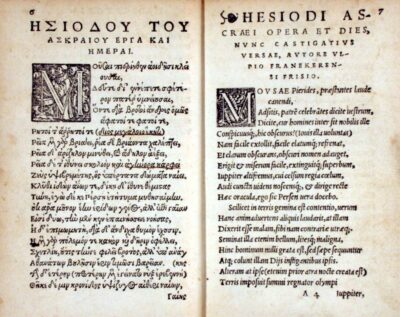
“Works and Days”
紀元前700年頃の古代ギリシャ社会
紀元前700年頃の古代ギリシャ社会は、ギリシャ文明の発展の初期であり、アルカイック時代と呼ばれています。
この時期は、重要な都市国家(ポリス)が形成され始め、ギリシャの政治、経済、文化が急速に発展しました。
この時代には、政治制度の変化が見られます。
最初の王政から貴族政治へと移行し、次第に民主制の基礎が築かれていきました。
また、ソロンやクレイステネスなどの改革者たちが法制度を整備し、平等な市民社会の構築に尽力しました。
Ancient Greek Society around 700 BCE
Around 700 BCE, ancient Greek society was in the early stages of Greek civilization’s development, a period known as the Archaic Age.
During this time, important city-states (polis) began to form, leading to rapid advancements in Greek politics, economy, and culture.
Political systems underwent significant changes during this era. Governance transitioned from monarchies to aristocracies, gradually laying the foundation for democracy.
Reformers like Solon and Cleisthenes played crucial roles in establishing legal systems and striving to build a more equitable citizen society.
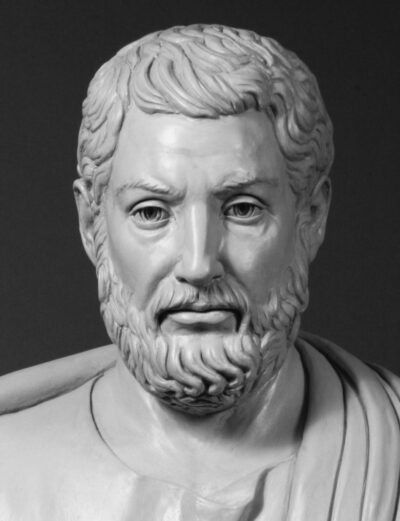
Cleisthenes
経済面では、地中海貿易の拡大により、ギリシャ社会は富を蓄え、都市国家間の競争が激化しました。
新たな技術や芸術が発展し、陶器や彫刻、建築などの独自のスタイルが生まれました。
また、アルファベットの発明により、文字が広く普及し、文化や知識の伝播が促進されました。
アルカイック時代の古代ギリシャ社会は、オリンピックをはじめとする競技祭典が開催され、宗教的な信仰と共同体意識が強まりました。
ギリシャ神話もこの時期に成立し、後のギリシャ文明に大きな影響を与えました。
この時代は、古代ギリシャ社会が急速に発展し、その基盤が形成された重要な時期であったと言えます。
Economic and Cultural Developments in Ancient Greek Society during the Archaic Age
The expansion of Mediterranean trade during this period brought considerable wealth to Greek society and intensified competition among city-states.
New technologies and arts flourished, leading to the emergence of unique styles in pottery, sculpture, and architecture.
The invention of the alphabet played a crucial role in the widespread use of written language, facilitating the spread of culture and knowledge.
In Archaic Greek society, events such as the Olympic Games were established, reinforcing religious beliefs and a sense of community.
Greek mythology also took shape during this era, profoundly influencing the later development of Greek civilization.
This period was marked by rapid growth and the establishment of foundational aspects of ancient Greek society.
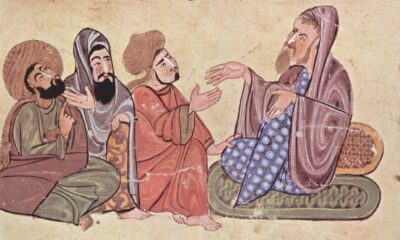
“A depiction of Solon and his disciples in Islamic miniature painting.”
ヘーシオドスとは誰か?
ヘーシオドスは、古代ギリシャの詩人であり、ホメロスと並んで最も古いギリシャ文学の代表の一人です。
彼は農業に従事しながら詩を書いていたとされ、現存する彼の主要な作品には『仕事と日』と『神統記』があります。
彼の作品は、自由で娯楽性に富むホメロスに対し、宗教的、教訓的な点で著しい特色を示しています。
具体的には、当時の農業生活や日常の知恵が具体的に描かれていたり、季節の移り変わりや自然現象に対する繊細な観察力を詩に織り込んだりしています。
彼の作品から見えるヘーシオドスの人物像は、道徳的で知恵に富んだ農民詩人として描かれています。
彼は労働や節度を重んじ、社会の秩序や家庭の維持にも力を入れていたと考えられます。
また、彼の詩には神々への信仰や敬虔さが表現されており、古代ギリシャ社会の宗教観も伺えます。
農業労働者として
古代ギリシャの農業労働者は、その社会の基盤を支える重要な存在でした。
彼らは主に小規模な家族経営の農場で働き、穀物、果物、野菜、オリーブやブドウなどの作物を栽培していました。
また、家畜の飼育も行われ、牛や羊、山羊などが飼われていました。
これらの農産物や家畜は、食料や衣料、貿易品として利用され、古代ギリシャの経済活動に大きく寄与していました。
ヘーシオドスも農業を営む一家で育ち、農業労働者として働いていました。
父が亡くなった後、兄弟と共に家族の土地を相続し、農業を営んでいましたが、兄ペルシスとの相続をめぐる争いが生じました。
この争いを通じて、ヘーシオドスは労働の重要性や正義についての教訓を得たとされており、それが彼の詩作にも影響を与えています。
詩作と創作
ヘーシオドスの作品は、特に農業や神話を題材にした詩作で知られています。
『仕事と日』では、叙事詩の形式をとり、農業労働や家庭生活に関する知恵や助言が語られています。
この詩では、労働の重要性や道徳観が強調され、古代ギリシャ農村社会の生活や価値観が具体的に描かれています。
これらは、彼自身の農業労働者としての経験や観察力に基づいており、自然現象や季節のサイクルに対する繊細な洞察が詩に織り込まれています。
『神統記』は、ギリシャ神話の神々の系譜や物語を詳細に描いた叙事詩で、ヘーシオドスの創作のもう一つの側面を示しています。
この詩では、神々の誕生や世界創造の物語が語られており、ギリシャ神話の構造や神々の関係についての基本的な情報源となっています。
ヘーシオドスの創作は、古代ギリシャの神話や信仰を反映したものであり、彼が生きた時代の宗教観や文化を伝えています。
Who is Hesiod?
Hesiod was an ancient Greek poet, renowned as one of the earliest representatives of Greek literature alongside Homer.
He is said to have composed poetry while engaged in agriculture, and among his surviving major works are “Works and Days” and “Theogony”.
In contrast to the free-spirited and entertaining Homer, his works exhibit remarkable characteristics in terms of their religious and didactic aspects.
Specifically, they vividly depict agricultural life and everyday wisdom of the time, incorporating keen observations of seasonal changes and natural phenomena into his poetry.
The portrayal of Hesiod in his works depicts him as a moral and wise peasant poet, who valued labor and moderation and placed importance on maintaining social order and family.
Moreover, his poems express faith and reverence towards the gods, providing insights into the religious beliefs of ancient Greek society.
As Agricultural Laborers
Ancient Greek agricultural laborers were vital to the foundation of their society.
Primarily working on small family-owned farms, they cultivated crops such as grains, fruits, vegetables, olives, and grapes.
Livestock farming, including cattle, sheep, and goats, was also practiced.
These agricultural products and livestock were essential for sustenance, clothing, and trade, contributing significantly to the economic activities of ancient Greece.
Hesiod himself grew up in an agricultural family and worked as an agricultural laborer.
After his father’s death, he and his brothers inherited the family land and engaged in agriculture, but disputes arose over the inheritance with his brother Perses.
Through this dispute, Hesiod is said to have gained lessons on the importance of labor and justice, which influenced his poetry.
Poetry and Creation
Hesiod’s works are particularly known for their poetic portrayal of agriculture and mythology.
“In Works and Days,” presented in epic poetry form, wisdom and advice regarding agricultural labor and household life are imparted.
Emphasizing the importance of labor and morality, this poem vividly depicts the lifestyle and values of ancient Greek rural society.
These insights are based on his own experiences and observations as an agricultural laborer, intricately woven with delicate observations of natural phenomena and seasonal cycles.
“Theogony,” on the other hand, is an epic poem that intricately details the genealogy and stories of the gods in Greek mythology, showcasing another facet of Hesiod’s creativity.
This poem narrates the birth of the gods and the creation of the world, serving as a fundamental source of information on the structure of Greek mythology and the relationships among the gods.
Hesiod’s creativity reflects ancient Greek mythology and beliefs, conveying the religious views and culture of his era.
ヘーシオドスの『仕事と日』の内容
『仕事と日』は、農業や家庭生活に関する知恵や助言、そして道徳や労働の重要性を伝える内容が詰まっています。
この詩は、ヘーシオドスが兄弟であるペルシスに宛てたものであり、以下のような主要な内容が書かれています。
たちに捧げられ、彼らの力を借りて詩を紡ぐことが語られています。
労働の価値:労働によって得られる富と名声の価値が強調され、怠惰や不正行為によって得られる富は非難されています。
季節の仕事:季節ごとの農業労働や家庭生活に関する具体的な助言が提供されており、耕 作、播種、収穫、畜産、家庭の維持などに関する知恵が詳述されています。
農業カレンダー:古代ギリシャの農業カレンダーに基づいて、一年を通じた農業作業の時 期が示されています。
プロメテウスとパンドラの神話:プロメテウスが火を盗み、人間に与えたことでゼウスの 怒りを買い、罰としてパンドラが創造された神話が語られています。
五つの人間の世代:金、銀、青銅、英雄、鉄の五つの世代が紹介され、それぞれの特徴や 運命が語られています。
詩の結び:詩の終わりには、ヘーシオドスが再び兄弟ペルシスに言及し、正義と労働の価 値を強調して締めくくられています。
Content of Hesiod’s “Works and Days”
“Works and Days” is packed with wisdom, advice on agriculture and household life, and the importance of morality and labor.
Addressed to his brother Perses, the poem contains the following key elements:
Introduction: The poem is dedicated to the Muses, goddesses of Greek mythology, emphasizing the role of divine inspiration in crafting poetry.
Value of Labor: It emphasizes the value of wealth and fame obtained through labor, condemning wealth acquired through idleness or dishonesty.
Seasonal Work: Concrete advice on seasonal agricultural labor and household chores is provided, detailing wisdom on plowing, sowing, harvesting, animal husbandry, and maintaining the household.
Agricultural Calendar: Based on the ancient Greek agricultural calendar, it outlines the timing of agricultural tasks throughout the year.
Myth of Prometheus and Pandora: The myth of Prometheus stealing fire and angering Zeus, leading to the creation of Pandora as punishment, is narrated.
Five Ages of Man: The poem introduces the five ages of humanity: the Golden, Silver, Bronze, Heroic, and Iron Ages, describing the characteristics and fate of each.
Conclusion of the Poem: Hesiod concludes the poem by once again addressing his brother Perses, emphasizing the value of justice and labor.
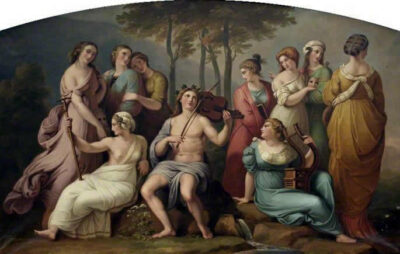
ヘーシオドスの『神統記』の内容
『神統記』は、ギリシャ神話の神々の系譜と物語が詳細に描かれています。
この詩は、神々の誕生、世界創造、神々の力関係や家族構成など、ギリシャ神話の基本的な構造を示しており、主要な内容は以下の通りです。
序文:詩はミューズたちに捧げられ、彼らの力を借りて詩を紡ぐことが語られています。
混沌(カオス)からの誕生:最初に混沌が存在し、そこからガイア(大地)、タルタロス(地下世界)、エロス(愛)が誕生します。
ガイアとウラノスの子供たち:ガイアとウラノス(天)が結婚し、タイタンたち、キュク ロプスたち、ヘカトンケイルたちが誕生します。
ウラノスの去勢とクロノスの台頭:ウラノスが自分の子供たちを恐れ、彼らを地下に閉じ 込めますが、クロノスが母ガイアの助けを借りてウラノスを去勢し、タイタンたちを解放 します。
Content of Hesiod’s “Theogony”
“Theogony” meticulously depicts the genealogy and stories of the gods in Greek mythology.
This poem outlines the fundamental structure of Greek mythology, covering the birth of the gods, the creation of the world, and the power dynamics and family relationships among the gods. The main contents are as follows:
Introduction: The poem is dedicated to the Muses, highlighting their role in inspiring poetry.
Birth from Chaos: Initially, Chaos exists, from which Gaia (Earth), Tartarus (the Underworld), and Eros (Love) are born.
Children of Gaia and Uranus: Gaia and Uranus (Sky) marry, giving birth to the Titans, Cyclopes, and Hecatoncheires.
Uranus’ Castration and Cronus’ Rise to Power: Fearing his own children, Uranus confines them underground, but Cronus, with the help of his mother Gaia, castrates Uranus and frees the Titans.
ヘーシオドスの著作の現代への意義
ヘーシオドスの著作は、古代ギリシャの詩人である彼の思想や哲学を伝える重要な資料となっています。
特に『仕事と日』と『神統記』は、彼の作品の中でも特に注目されています。
『仕事と日』と『神統記』の現代的な読み方
『仕事と日』は、人間の労働や日常生活についての詩であり、現代社会においてもそのテーマは重要です。
私たちは仕事や日常生活の中で様々な問題や課題に直面しますが、ヘーシオドスの詩からは、努力や正義の重要性を学ぶことができます。
一方、『神統記』は、神々や神話についての詩であり、現代社会においても神話は人々の想像力や文化に大きな影響を与えています。
ヘーシオドスの詩からは、神話の力やその背後にある普遍的なテーマについて考えることができます。
ヘーシオドスの思想と現代社会
ヘーシオドスの思想は、現代社会においても有益な示唆を与えています。
彼は、正義や労働の重要性を強調し、個人の努力や道徳的な行動の重要性を説いています。
また、ヘーシオドスは神々や神話を通じて、人間の存在や宇宙の秩序について考えることを促しています。
現代社会でも、宗教や哲学を通じて人間の存在や倫理について考えることは重要です。
ヘーシオドスの著作は、現代社会においてもその思想やテーマが意義を持ち続けています。
彼の詩からは、人間の努力や正義、神話の力や普遍的なテーマについて学ぶことができます。
現代の人々にとっても、ヘーシオドスの著作は価値ある資料となっています。
The Significance of Hesiod’s Works for Today
Hesiod’s writings serve as crucial sources for understanding the thoughts and philosophies of this ancient Greek poet.
Particularly, “Works and Days” and “Theogony” garner significant attention among his works.
Modern Interpretation of “Works and Days” and “Theogony”
“Works and Days” delves into themes of human labor and everyday life, which remain pertinent in today’s society.
In our contemporary world, we encounter various issues and challenges in our work and daily lives. From Hesiod’s poetry, we can learn about the importance of effort and justice.
On the other hand, “Theogony” explores gods and myths, which continue to influence people’s imagination and culture in the modern world.
Through Hesiod’s poems, we can contemplate the power of mythology and its underlying universal themes.
Hesiod’s Philosophy and Contemporary Society
Hesiod’s philosophy provides valuable insights for modern society.
He emphasizes the importance of justice and labor, advocating for individual effort and moral conduct.
Furthermore, Hesiod encourages contemplation on human existence and the cosmic order through gods and myths.
In contemporary society, pondering human existence and ethics through religion and philosophy remains crucial.
Hesiod’s works continue to hold significance in today’s society, offering lessons on human effort, justice, the power of mythology, and universal themes.
For modern audiences, Hesiod’s writings remain valuable resources.
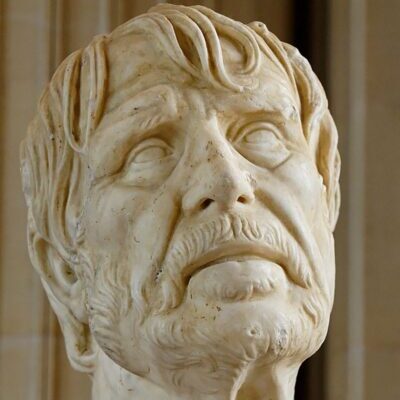

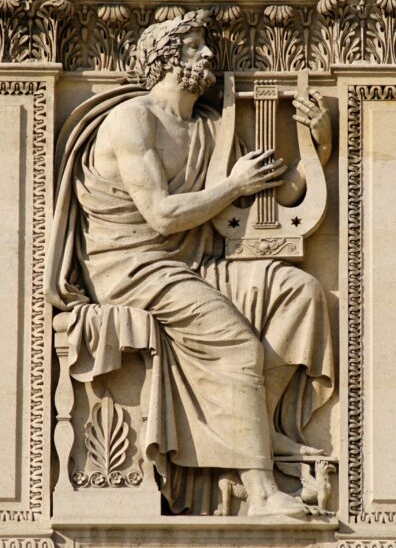
コメント